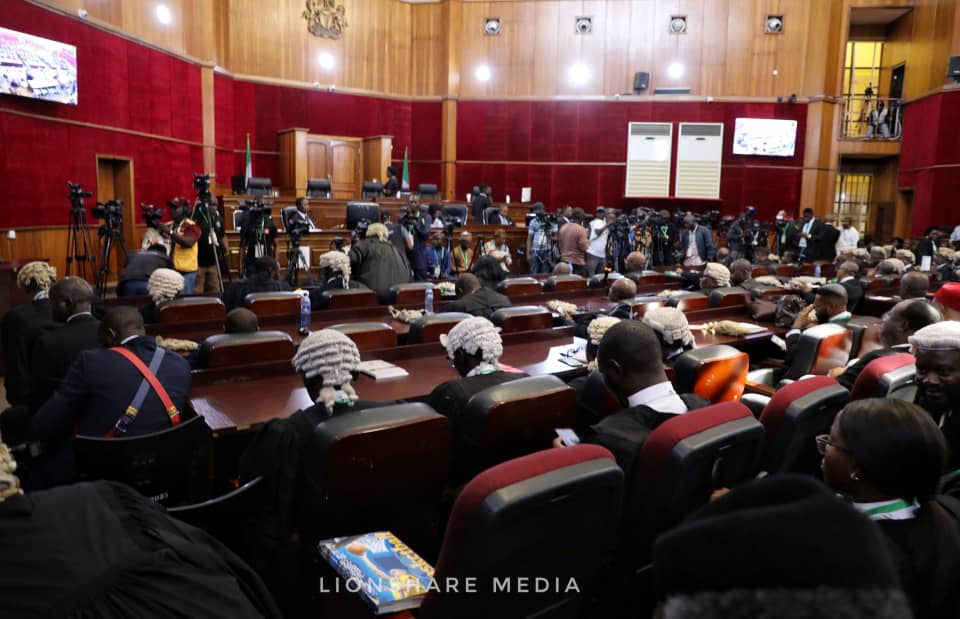BY STANLEY ALIEKE
I will take the time to analyse the just-delivered judgment of the court of appeal in Obi /Atiku vs Tinubu presidential election petition subsequently but before then, this is what I need you to know about not just election petitions but every other court proceeding in general.
As a politician, try as much as possible to win the election and for you to be declared elected or returned elected. The reason for this is that there is a higher chance of the court affirming your election than sacking you. In fact, in all the presidential election petition cases that have ever taken place in Nigeria since 1999 when Nigeria returned to democracy, the court has never sacked an elected president, rather the court always affirmed their election.
Despite the promises your lawyers have made to you, you should know that it is extremely difficult and technical to prove that an election was rigged in today’s Nigeria. This is not an injustice or judicial problem but a statutory problem. There is a high threshold provided in the constitution, the electoral act and other statutes for an aggrieved contester to meet before he can prove that he was the rightful winner of the election or that the person that was declared a winner did not actually win or prove that the election was rigged or marred with malpractices. The threshold to prove that is not just high but also technical.
Advertisement
Not just in election cases, but even in criminal or other civil cases, it is easier to defend yourself or to be the defendant than to be the plaintiff or the prosecutor. It is an old common law rule that he who alleges must prove, so if you claim that the election was rigged or marred with electoral malpractices, the onus is on you to prove to the court beyond every reasonable doubt that the election was truly rigged. If you are the defendant, you don’t need to prove that the election was not rigged or that you were duly elected, it is not your job to do that.
This brings me to my next point; always try to be the defendant or respondent instead of the plaintiff or the applicant. Let them be the ones taking you to court instead of you taking other people to court. Financially speaking or resource-wise, it is more expensive to file a case or institute a fresh matter than to file a defence or response to a case.
Local parlance will say “no be who first call police dey win case” or “no be who first run reach police station dey win case”. This popular pidgin quote tends to be true in many cases; because if you claim that you were wronged, you will have to prove that you are truly wronged for the court to believe you and while you are trying to prove that you were wronged to the satisfaction of the court, you will as well have to pay critical attention to statutory provisions and rules of court to guide you, if not you will lose the case on technical ground before the substance of the case is even determined.
Advertisement
Losing on technical grounds means that your case was not even decided on its merits or the substance of your case was not even looked into yet but because you did not pay attention to the rules guiding the filing of your case or the process to conduct the case, the case was either dismissed, struck out or that the other party won the case; this may be due to lack of service, ie, you did not serve or properly serve the other party; or it is statute barred — the time within which you are to bring that case to court has passed; lack of jurisdiction of the court or that the case was not properly filed or instituted etc.
For the sake of emphasis, always remember that “no be who first call police dey win case”, so lower your expectations while you run to court in your quest for justice. Most importantly, bear in mind the judges are mere humans like you who can make mistakes. That is why you might have a good case, conduct the case in the expected manner and you will still lose the case. Hence, the court or the judges are not always right, not even the supreme court which is the highest court in the land. This is why the late Robert Jackson of the United States Supreme Court made this famous quote about the supreme court: “We are not final because we are infallible, but we are infallible only because we are final.”
Stan Alieke, a legal practitioner, can be reached via [email protected]
Advertisement
Views expressed by contributors are strictly personal and not of TheCable.
Add a comment






